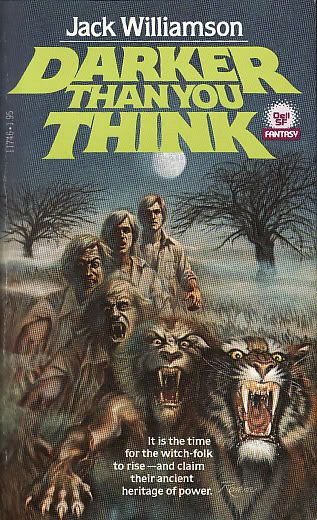How about "Interview With a Vampire" by Anne Rice?
I think that one might have to be included, yes. It has certainly had its influence, and there is much about the novel which is quite good. Much of her other writing, however... well, that's more debatable.
Connavar: when I go into a bookstore, new or used, King, Koontz, Barker, and Rice dominate the horror section. Together they tend to take up well more than half of the shelf space. To me, that is simply obscene, given the number of excellent writers past and present whose works are in print. I seldom see, for instance, Caitlin R. Kiernan in used shops (though I see her friend Poppy Z. Brite a fair amount), and that is one writer I would much rather see on the shelves. She is one of the few who can convey that subtle aura of, as she calls it, "deep time" and the way it dwarfs the human race into insignificance, and just generally create a fine atmosphere of awe and dread. (She has her stylistic quirks which can be annoying -- though they have become progressively less, almost to the vanishing point -- but she is a writer whose work also impresses me enormously.)
Ian: thanks for the feedback. That seems to be a fairly common experience for a lot of readers and, yes, most people when they think of "horror" tend to think of the gore and grue, physical violence and (frankly) sadism. Thankfully, that is only a very tiny portion of what horror has to offer; it is as varied and as rich a field as any out there, and can go from the wistful and poetic but extremely eerie to the outright chilling. If you have any inclination to find out more, you might take a look at some of the suggestions which have been made in various threads around here. As for classics -- I'd suggest giving a careful read to Lovecraft's
Supernatural Horror in Literature and picking out a few writers from different sections as a good way to start. (I would, for instance, highly recommend several of the French writers, as well as many of those listed in the chapters on the American and British Weird tradition). He didn't cover everything (some of it was simply impossible for him to acquire at the time; others left him cold due to his own biases), but it remains the best historical survey of the field, I think, and just a
list of the works alone takes up something around fourteen or fifteen pages....
(Also, as I have mentioned elsewhere, a close reading is a good idea, as Lovecraft very carefully chooses his phrasing. His description of
Dracula, for instance, betrays both his acknowledgment of its status and influence and his own reservations about the novel....)


